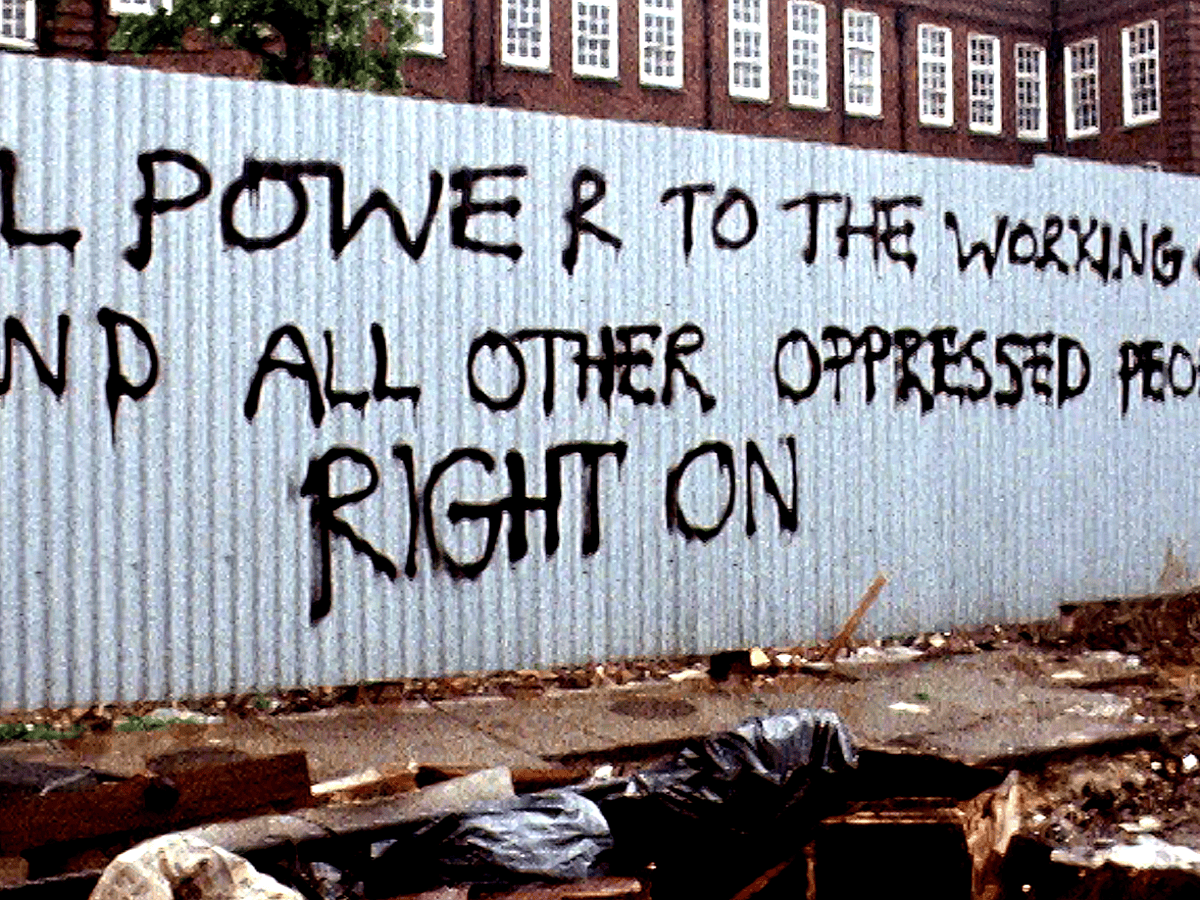check an interview with the author here
Largely I would say Aris K. A. takes a wide look at how the speculative – as a vacuous category mostly understood as and defined by today’s encroaching financial markets. Here’s my first point of contention – why ignore or abandon definitions of how ‘the speculative’ has been reinstated or applied inside philosophical traditions. Before the high abstractions of abstruse financial instruments and even before let’s say the ‘speculative turn’ in recent philosophy, we’ve seen at the start of the 20th c philosophers such AN Whitehead understanding of speculative thinking as playing a vital role in the history and evolution of philosophical trends (see for this Whitehead and Bradley a comparative analysis by Leemon B McHenry 1992). Speculative constructions are what philosophical movements do. During historical periods entire domains of human knowledge get preoccupied & immersed in a feverish activity that results in these expansive theoretical constructions that are being pruned back by analytical rigor & methodological fasting. But then such a strict adherence to methodologies starts being stifling and exhausting and the central issues feel stale and burdensome, so speculation is needed to embolden and rejuvenate this thirst for understanding. At the time, from a minority position of sorts within the philosophical mainstream, Whitehead enlivened this productive relation by building his own metaphysical scheme, in a period when metaphysics fell out of favor with philosophers and was still railing after what some have called the ‘Kantian catastrophe‘. His fresh exercise in speculative thinking acknowledged that philosophical trends came to be dominanted by logical positivism or linguistic analysis: the new orthodoxies of the 20th century. At a time when the speculative in its philosophical sense was lagging behind, speculation was in fact flowering elsewhere, with physics and cosmology picking up on this relay – emboldened by new advances in experimental science, relativity theory, quantum mechanics, as well as evolutionary & organicist thinking in biology, areas that kept revolutionizing our understanding of the universe and surrounding reality.
At rhe same time one needs to somehow give due recognition to how communities and writers of speculative fiction have been using that term to specifically explore the variations and possibilities of an unknown and unpredictable future through their work. Here I am following closely a key text by Steven Shaviro that attempts to trace how speculative fiction and financial speculation interlace yet part ways when it’s about nurturing and multiplying possibilities (in the case of SF) versus just making them operational in the present or trying to actualize them and exhaust every potential (in the case of financial markets). Yes, one can subsequently attribute this current opening towards the speculative – as signaling a growing disposition towards and awareness of the ‘great outdoors’, of the ‘- exo’ everything or even growing larger participation than ever in fictioning as part of the growth of a vibrant SF global community and multiple translations. So it’s good to keep all this on my mind when Aris is talking about the (as yet incomplete) transition from the rational subject implied by most classical bourgeois economics of the so-called Homo economicus that was supposedly all about individual decisions, equilibrium, optimization and maximizing profits towards what he calls the Homo speculans of today characterized not just by risk-taking or betting on known probabilities (here he makes a distinction between betting and speculation) but somehow on increasing uncertainty, creating havoc while staying afloat when everything that previously seemed imposibile or improbable seems to happen. He is the newly evolved species that even social theory at this moment has not reckoned with. In the face of all the rising algorithmic injustice, in the face of inequality and the inherent insecurities of a financialized world there’s new communities coalescing that he calls speculative communities. And he adopts this in order to stay clear of how ‘mass delusions’ have been been described since the 19th c. Imagination used as a generative – productive capacity is not new its as old at least as the Industrial Revolution or International Labour’s Movement. Aris picks up on Benedict Anderson notion of imaginary communities – the development of ‘nation states’ and nations as invented, co-imagined communities birthed out of the volatility of industrial revolution and the breakdown of old worldview and formation of new ones. I’m also thinking a bit ahead – about working class organizations and even syndicates – that also form in the face of class conflicts and struggles that offered more than wage slavery and uncertain livelihoods. So one should not stop at brokers when thinking about imaginary or speculative communities. On one side this helps perceiving these old/new speculative or imaginary communities aggregating not as irrational mindless crowds but as mutating communities faced with more and more insecurity and uncertainty trying théorie best not to reap luxury benefits but to try and stay afloat among speculative bubbles that they don’t really control. This new Homo speculans is gregarious, swarming and animated by ‘animal spirits’ (in the words of Keynes) and hearsay because it knows how important it is to be more opened (than before) towards the possibility of radical contingency and oriented towards the absolute and completly unpredictable unknown (not just the calculated unknown of probabilities and risk management but one that is completely impossible to anticipate!). In a sense as financial markets kept making our way world more disastrous and prone to unusual outcomes, people have managed navigate dangerous waters, admitting unrecognizable configurations or vernacular practices tonemerge often as forms of counter-speculation. Yet sadly in the Anglo US world its not the Indian farmer revolts but the Anarcapulco crowd who strike one as a thoroughly speculative speculator community.
I at this moment have my own doubts about how much Homo speculans is as open as pretend open or indeed as adaptive if left to live (unaided) amongst the ruins of crumbling infrastructure and disappearing old certainities (and new very clear certainities such as climate change challenges). One big absence from this account is the existence of actual institutions or dirigiste hybrids that are both harnessing these speculative cyclical bubbles and that try to operate at a structural level instituting pockets of certainty, leveraging, changing probabilies and actualizing futures in a more planned and directed way. Here I am thinking about the real semiconductor Asian miracle and leveraging of highly skilled and complex tasks in the chip industry – essential and important to both to current algorithmic capitalism and also a (safe) way to surf the regular tsunamis of this Schumpeterian capitalism. Subsidies are the key here and this is not such a wild bet at all but a careful grooming. I am wondering about spontaneous groups & communities and how this spontaneity is only partial and inversely how the statal buffering against such rampant speculation keeps intervening to save those selfsame markets.
At this more lower spontaneous level, H speculans has also learned something dangerous under dangerous highly volatile times, that he can, under conditions of growing disempowerment & instability still change the odds or try to stay abreast by somehow and more controversially increasing unpredictability. This is how Aris reads these quite worrying & catastrophal political trends of ethno politics & populism in general because he somehow refuses to judge these newly formed conspiracy- swimming communities as purely irrational or just misinformed and lunatic fringe. Aris is a former economist turned sociologist and this already tells us something. Have not read the book – but his argument is surely more complex and I urge you to read the interview. His recourse to the mythical I find a quite problematic but i find his openness to subcultures and conspirative thinking amenable to high weirdness (as defined by Erik Davis). One last thing – I posted this after the podcast on Elon Musk because Aris AK also pics on Musk as an example of typical speculator (Trump and other recent demagogue aren’t also there) – pulling stunts, using memes, switching from one day to the next and fooling around with his own ability to spin tall tales, combine science fact with science fiction, inflame the imagination of his fans and plunge or push up stocks by tw most inconsequential affirmations on his twitter feed. To his credit Aris also recuperate the true origins of speculative financial markets in the 1900 Chicago, the first derivative market of abstract financial instruments in the world, developed initially (if i understood well) as means to hedge farmers against such risks as a bad harvest that they couldn’t control or risks of food products going rotten and nobody wanting to buy them. This is a story worth reading in itself but he goes further than economics or financialization into our daily app practices & tech addictions, our increasingly fluid and volatile love-lives as they grow or result from our increasing usage of dating apps and constant swiping. He considers imagination a guiding faculty to help us wade through the murky waters of speculation (here i have some trouble – stemming from Guy Lardreau’s critique of imagination that lags behind and how fiction jumps ahead of this poverty of imagination).
“Speculative Communities investigates the financial world’s influence on the social imagination, unraveling its radical effects on our personal and political lives.
In Speculative Communities, Aris Komporozos-Athanasiou examines the ways that speculation has moved beyond financial markets to shape fundamental aspects of our social and political lives. As ordinary people make exceptional decisions, such as the American election of a populist demagogue or the British vote to leave the European Union, they are moving from time-honored and -tested practices of governance, toward the speculative promise of a new, more uncertain future. This book shows how even our methods of building community have shifted to the speculative realm as social media platforms enable and amplify our volatile wagers.
For Komporozos-Athanasiou, “to speculate” means increasingly “to connect,” to endorse the unknown pre-emptively, and often daringly, as a means of social survival. Grappling with the question of how more uncertainty can lead to its full-throated embrace rather than dissent, Speculative Communities shows how finance has become the model for society writ large. As Komporozos-Athanasiou argues, virtual marketplaces, new social media, and dating apps bring finance’s opaque infrastructures into the most intimate realms of our lives, leading to a new type of speculative imagination across economy, culture, and society.”


